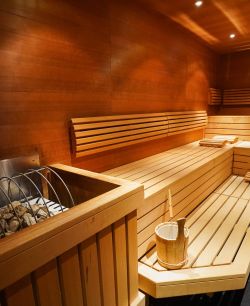
Welcome to Building Principles
Is Your Gym Protected From An ADA Lawsuit?
Gym owners may be surprised that there are specific spacing requirements between equipment. There are ADA requirements for the showers, bathrooms, and Pool and Spa areas for gyms that provide those services. Steamrooms and Saunas also have door width and seating requirements, which could lead to costly ADA violations if left unchecked. Like many industries getting your business compliant could also provide an excellent opportunity to market your business to more than 20% of Americans with some disability.
Most business owners do not know that even if your Gym is compliant with the 1991 ADA Standards, it is most likely not in compliance with the latest California Building Code. Obtaining inspection from a low-quality inspector could lead to unnecessary upgrades and wasted money.
By obtaining the ACCESS INSPECTED certificate from one of our Certified Access Specialists (CASp), you will gain Qualified Defendant status. This status grants you protections from certain legal fees, extends time constraints, gets an early evaluation, reduces overall costs, creates additional steps for the plaintiff, discourages unnecessary lawsuits and more.

Gyms across California and the U.S. have ADA requirements that leave them vulnerable to costly lawsuits, starting from the parking lot to the bathroom. In the Americans with Disabilities Act (ADA), a business or Public Accommodation for newly constructed buildings must be accessible. For existing buildings, and all barriers must be removed if it is readily achievable. A business can defend the ADA claim if it shows that removing the barriers is not readily achievable; however, the reality for many businesses is that most barriers can be removed for a minimal cost. ADA plaintiffs typically specialize in these types of lawsuits and know the difficulty many businesses face to get the case dismissed. If a company is sued in an ADA lawsuit, it can either settle or defend; if you defend, there will be a rigorous investigation of the many factors initiated in the lawsuit. The cost of defending an ADA action is usually high because the cases are fact-intensive that require expert testimony, and the plaintiffs’ attorneys tend to be aggressive. In most ADA cases, they know that attorney fees can be recovered if they prevail; even settling a case to avoid more legal costs can make the business look naive and invite more lawsuits.Do not wait until you are in this predicament.
California AdaAs a business in California, you cannot afford not to be protected from costly ADA lawsuits. California every year has more than half of all cases in the United States, and every year costly lawsuits in California have increased and become more frequent. ADA lawsuits have a $4,000 minimum often per visit and can be as much as $100,000 in some cases. Get in touch with us, and let us help you protect your business.
